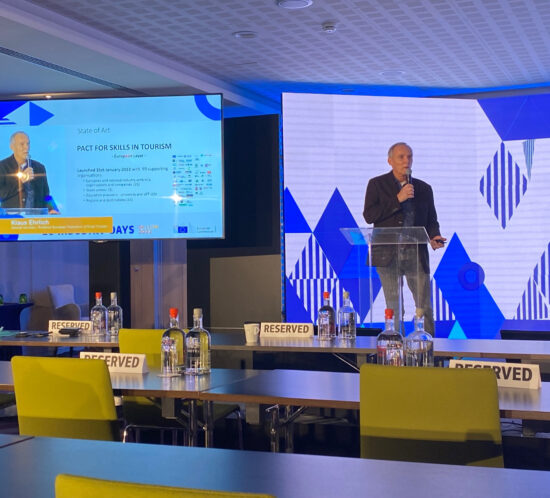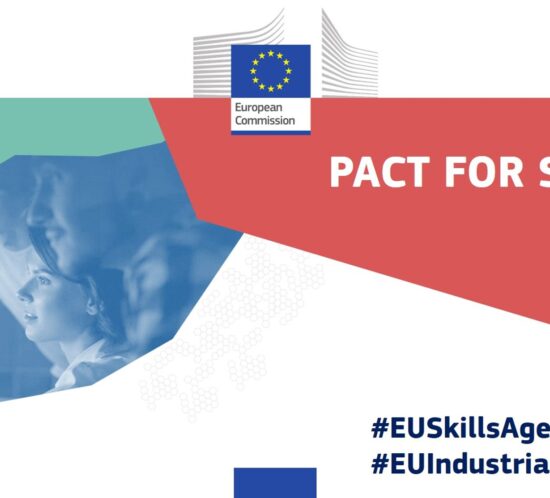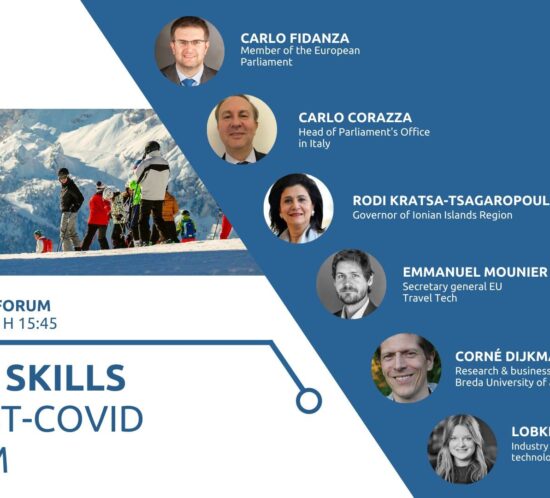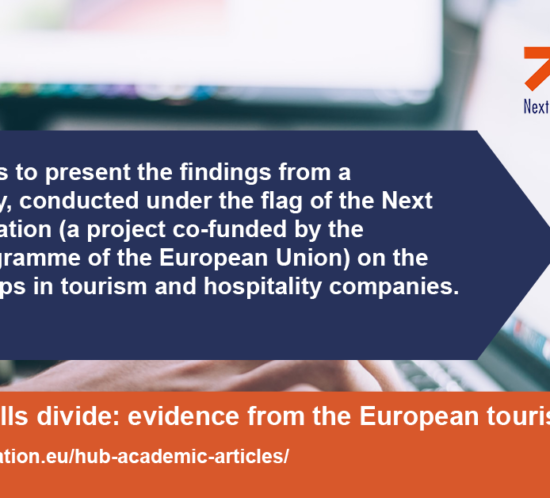Next Tourism Generation Alliance participated in the EU Industry Days
Last week, the Next Tourism Generation Alliance participated in the EU Industry Days. The program had a special focus on tourism and skills. Did you know that the tourism sector generates 10% of the European GDP and jobs? During the event, the European Commission presented the ‘transition pathway for tourism’. The Next Tourism Generation already mobilized to catalyze the green and digital transitions of the tourism sector through practice-based research and provide the current next generation of tourism professionals with skills for the future through training and education.

NTG participated in the spotlight event with the track ”EU accelerating the green, digital and resilient transition”. On February 9, Klaus Ehrlich (photo), General Secretary, Ruraltour-European Federation of Rural Tourism and NTG partner, represented the EU Pact for Skills: towards the up and re-skilling of the European workforce.
- Re-watch the session here
- Download the presentation and click: EUID – Pact for Skills_Tourism 220209
- And sign-up for the Pact for Skills














